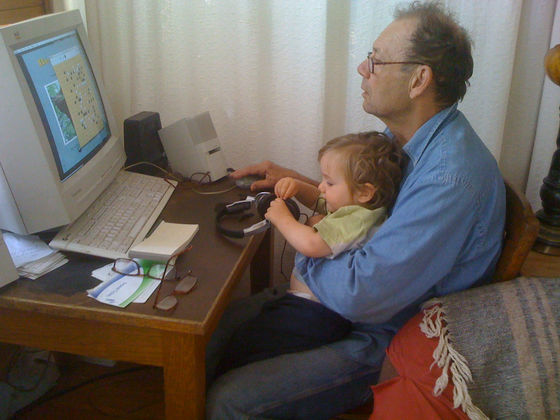Motivation in programming learning for the elderly · Reason for frustration · Examination of suitable learning materials

ByBryan
In recent years that is becoming an "aging world" that 16% of the world population will be over the age of 60 by 2030,People who become software developers even in their late thirties or even in their 50sAndThose who go through "life-time active developers" even in their 60sAs is the case, the demand for "programming learning" among elderly people is increasing. Therefore, research results have been reported that investigate the motivation for elderly people to start programming learning, the reason why they are frustrated after starting learning, and how to make programming learning opportunities suitable for elderly people.
Paper - older - adults - learning - programming_CHI - 2017.pdf
(PDF file)http://pgbovine.net/publications/older-adults-learning-programming_CHI-2017.pdf
Older Adults Learning Computer Programming: Motivations, Frustrations, and Design Opportunities | blog @ CACM | Communications of the ACM
https://cacm.acm.org/blogs/blog-cacm/217281-older-adults-learning-computer-programming-motivations-frustrations-and-design-opportunities/fulltext
Philip Guo of the University of California, San Diego,Human Computer Interaction(HCI) conference "CHI 2017"And reported a paper entitled" Computer Programming Learning for the Elderly: Motivation, Frustration, Opportunity Design "and won an extraordinary honorable mention award.
In this paper,K-12In the mainstream programming culture of young people and more than college students and above, "What is the motivation for elderly people over 60 years of age to learn how to code?" According to the United Nations' estimate, it is estimated that by 2030 the population over 60 years of age in North America and Europe will reach 25%, and in the world population it is thought that the generation over 60 will occupy 16% . For these reasons, research on programming learning targeting the elderly has been conducted.

ByJody Morris
Guo has been using popular code learning site "Python TutorWe have a total of 3.5 million visitors from 180 countries so far. Since Python Tutor occupies 16% of user base over 55, Guo created ten questions for the elderly and solicited online questionnaires. As a result, we were able to obtain responses from 504 people in 52 countries (average age 66.5 years old), and the results of analyzing each are as follows.
◆ Motivation: Why did you start programming learning?
· 22% of respondents started learning to compensate for opportunities missed when they were young.
· 19% of respondents started learning because of brain movement accompanying aging and anti-aging.
· 5% of respondents started learning because they were influenced by nearby existence such as children and grandchildren.
◆ Frustration: Why did I start to settle programming learning?
· 14% of respondents failed their learning due to perceptual obstacles such as forgetfulness or difficulty concentrating.
· Since 11% of respondents had spousal care etc, they lost their learning due to lack of free time.
· 10% of respondents have no educational tools other than online learning, classrooms with well-equipped environments, lecturers who can discuss problems, and setbacks of the same level failed to settle.
◆ Design of a programming learning tool suitable for the elderly
This research "Learner-Centered Design of Computing Education: Research on Computing for EveryoneAs a result of applying it to the computing learning framework for learners advocated by Mr. Guo, he set up a design process in three programming learning.
· Targeting
A curriculum and tool that the elderly feels "This seems to have been made for myself" is necessary. As a result of analyzing respondents, elderly people "Lumosity"There is a possibility that programming education tools with brain training and the like may be suitable for elderly people.
· Contextualization
It is also important to provide a learning tool that is consistent with the age of learners, rather than pressing highly versatile learning materials. For example, by engaging in a programming project that creates digital media for the elderly and tools to manage personal medical data, it is expected that you can keep learning with motivation.
· Universal design
Universal designIs a design that can be used regardless of culture, language, nationality, difference between young and old and old, regardless of disability / ability, but it is a design specialized for a specific layer such as the elderly It can be said that eventually it leads to an easy-to-use design for everyone. For example, if we can design a next-generation educational programming environment that can mitigate the effects of both cognitive and movement disorders, such as elderly people can do code learning without dissatisfaction, in fact they will benefit from all ages It may be a learning tool to give.

Related Posts:







